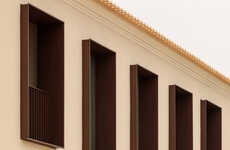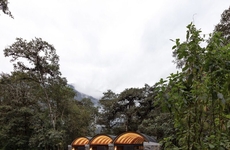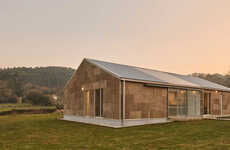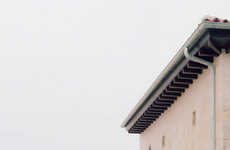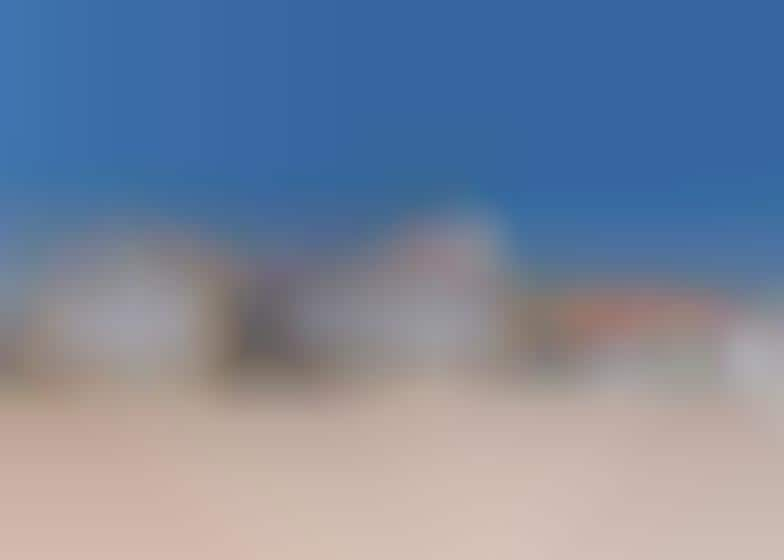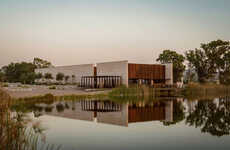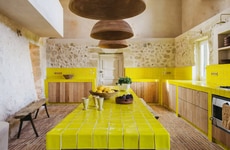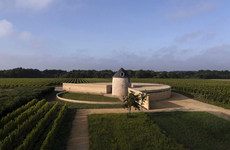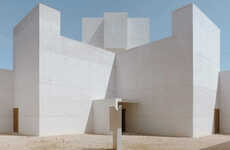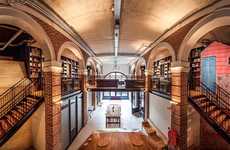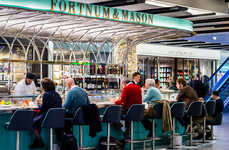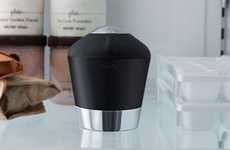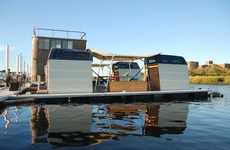
The Torre De Palma Wine Hotel Received an Extension and Upgrade
Vasiliki Marapas — January 31, 2015 — World
References: torredepalma & dezeen
João Mendes Ribeiro opted for a material palette of raw concrete and timber when designing an extension for the Torre De Palma Wine Hotel, a beautiful accommodation located in rural Portugal.
Ribeiro's boxy volumes were capped with white gabled roofs, borrowing from the architecture of traditional Portuguese farm buildings. The key difference between the hotel's roofs and those of a traditional Portuguese farm house lies in the fact that the former was made from cast concrete.
The extension was designed to provide extra bedrooms, as well as a concrete-lined spa, to the existing facilities. Ribeiro made special note of the character of the other buildings, which feature white walls and terracotta roof tiles, so as to ensure his design blended seamlessly.
Ribeiro's boxy volumes were capped with white gabled roofs, borrowing from the architecture of traditional Portuguese farm buildings. The key difference between the hotel's roofs and those of a traditional Portuguese farm house lies in the fact that the former was made from cast concrete.
The extension was designed to provide extra bedrooms, as well as a concrete-lined spa, to the existing facilities. Ribeiro made special note of the character of the other buildings, which feature white walls and terracotta roof tiles, so as to ensure his design blended seamlessly.
Trend Themes
1. Rural Wine Hotels - The rise of rural wine hotels is creating opportunities for architects and designers to incorporate traditional local architectural features with modern materials and design elements.
2. Raw Material Palette - The use of raw concrete and timber as a material palette is becoming increasingly popular in the hotel industry as it creates a unique and modern design aesthetic.
3. Concrete-lined Spas - The addition of concrete-lined spas in hotel extensions is becoming a popular way to enhance guest experiences and create a modern and sleek design element.
Industry Implications
1. Hospitality - The hospitality industry can capitalize on the rise of rural wine hotels, incorporating local materials and design elements to create unique guest experiences.
2. Architecture - The architecture industry can take advantage of the demand for unique rural wine hotels by designing extensions that incorporate traditional local architectural features with modern materials and design elements.
3. Design - The design industry has the opportunity to create a unique and modern design aesthetic in rural wine hotels by using a raw material palette and incorporating design elements such as concrete-lined spas.
4.7
Score
Popularity
Activity
Freshness

